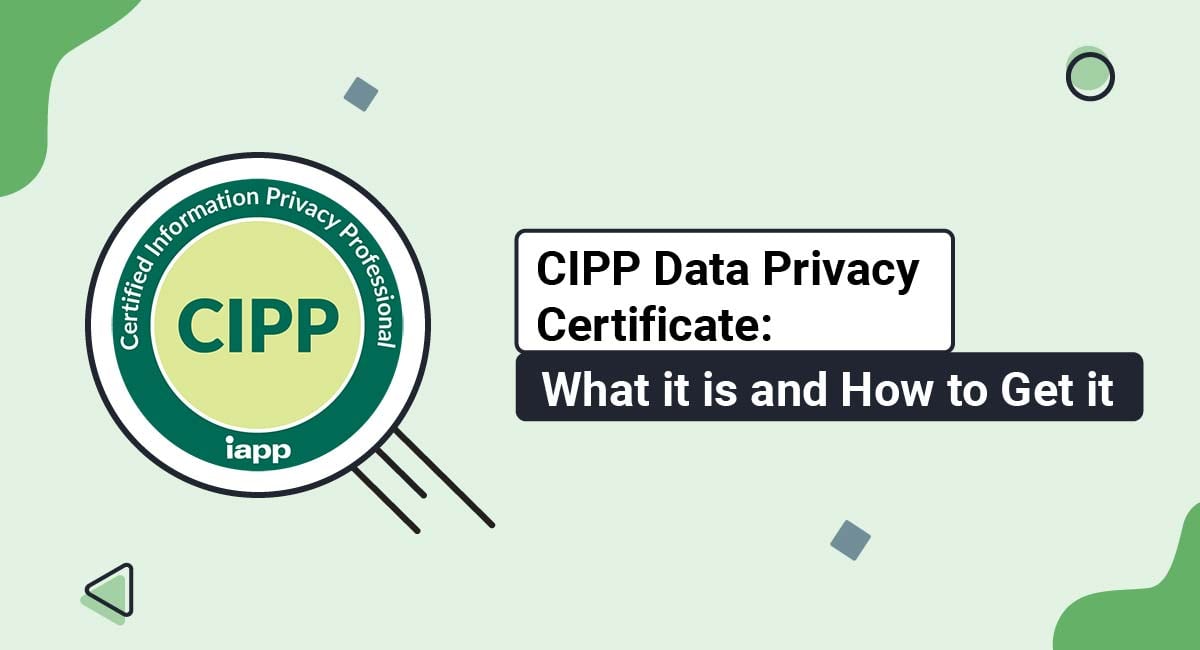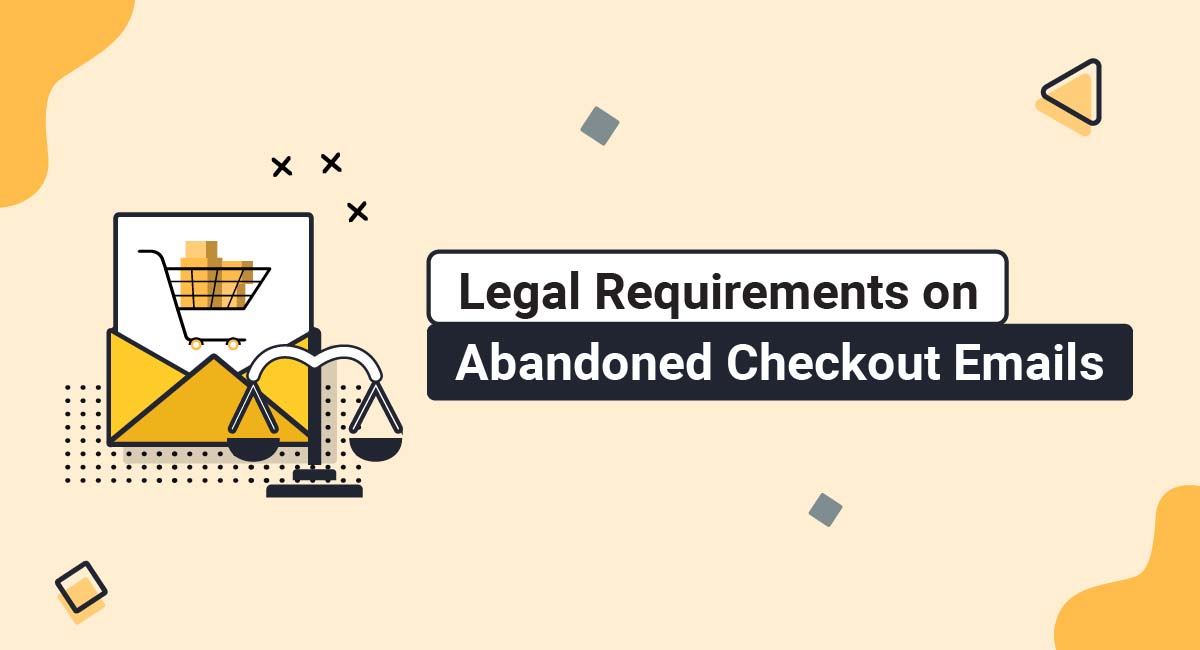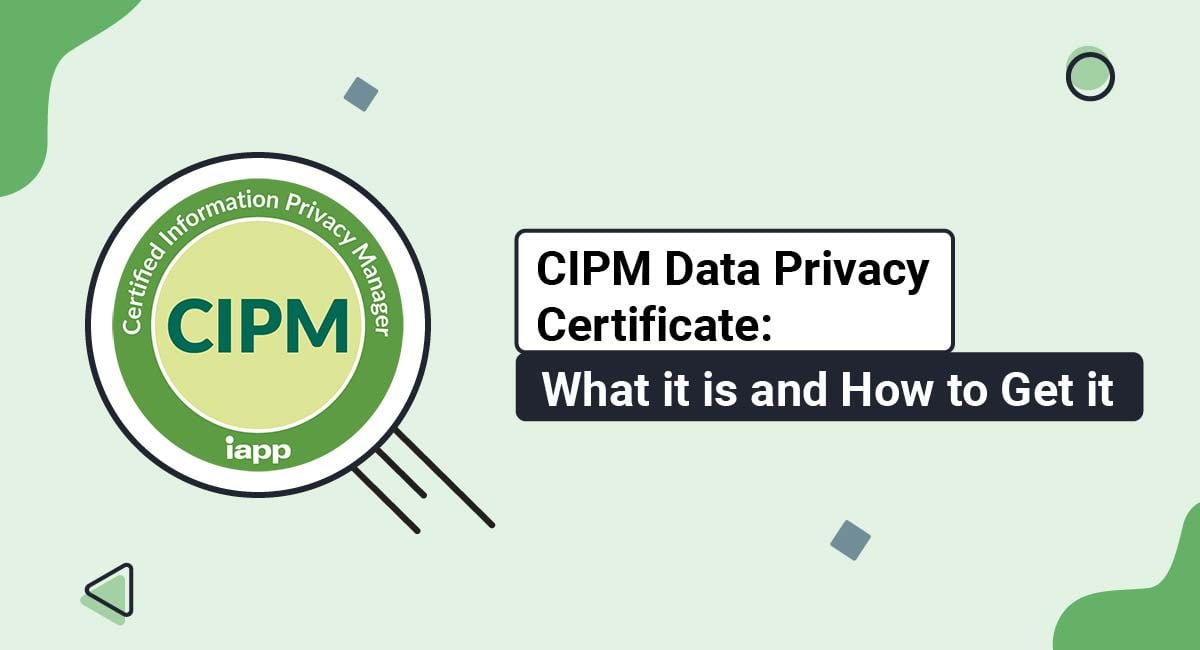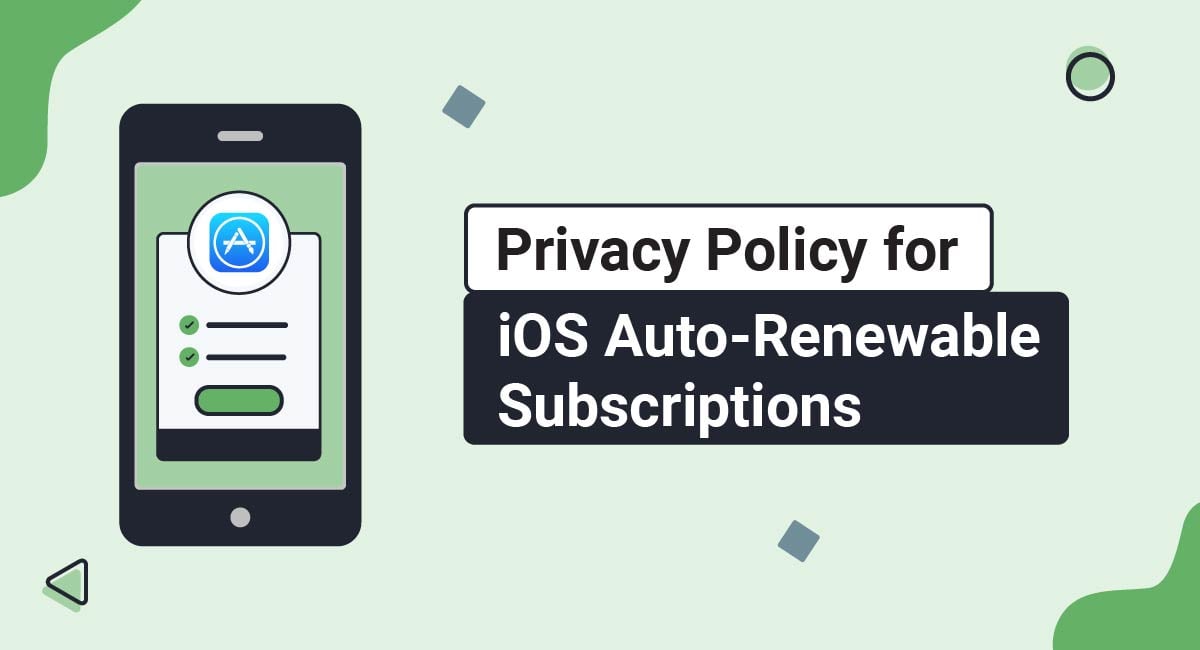As privacy and data protection laws proliferate with each passing year, an increasing number of organizations are seeking highly-trained privacy experts. Privacy professionals who pass a Certified Information Privacy Professional Data (CIPP) program and receive a data privacy certification stand out from the crowd, as a CIPP Data Privacy Certificate demonstrates that they know how to treat data as the valuable commodity it has become and ensure compliance with continuously evolving privacy regulations.
This article explains what a CIPP Data Privacy Certificate is, the benefits of having one, what jobs require a CIPP Data Privacy Certificate, the average salary for a CIPP-certified professional, and the steps you can take to get certified.
- 1. What is a CIPP Data Privacy Certificate?
- 2. What are the Benefits of Having a CIPP Data Privacy Certificate?
- 3. Is a CIPP Data Privacy Certificate a Requirement for Any Jobs?
- 4. What Jobs Can You Get With a CIPP Data Privacy Certificate?
- 5. What is the Average Salary for CIPP Data Privacy Certificate Certified Professionals?
- 6. How Can You Get a CIPP Data Privacy Certificate?
- 6.1. 1. Choose Your Region
- 6.2. 2. Create an IAPP Account
- 6.3. 3. Purchase a CIPP Exam
- 6.4. 4. Prepare to Take the Exam
- 6.5. 5. Take the Exam
- 6.6. 6. Maintain Certification
- 7. Summary
What is a CIPP Data Privacy Certificate?
A CIPP Data Privacy Certificate is a certificate that shows that you have passed a CIPP program. It demonstrates your knowledge of privacy laws, risk mitigation tactics, and best practices for data collection, processing, and transfer.
A CIPP program gives privacy experts the training they need to ensure that organizations are proactively managing risks and protecting consumers' data and privacy rights.
A CIPP Data Privacy Certificate shows that an individual has the training and knowledge necessary to:
- Implement best practices for handling and transferring data
- Comply with state, federal, and global privacy laws
- Mitigate data and privacy risks
CIPP programs are offered by the International Association of Privacy Professionals (IAPP). IAPP is a nonprofit that provides resources for professionals who want to help organizations manage privacy risks, comply with data protection laws, and protect consumers' personal information.
The CIPP programs cover:
- Privacy and data protection laws (including workplace and state privacy laws)
- How to ensure legal compliance
- Best practices for handling information
- Data governance (how data is treated through its lifecycle)
- Data breach management
- Privacy issues in investigations and courts
- Human resources
Individuals can get certified in four different regions: Asia, Canada, Europe (EU), and the United States (U.S.) private-sector. Existing certification holders can also get U.S. government-specific certification.
What are the Benefits of Having a CIPP Data Privacy Certificate?
The benefits of having a CIPP Data Privacy Certificate include:
- You can help ensure that organizations are in compliance with global, federal, and state privacy and data protection laws
- You will have a solid understanding of how best to protect data and mitigate risks to data and consumer privacy
- The knowledge you obtain from a CIPP training can give you a competitive edge in the global marketplace
- You will have the training necessary to function as a data protection officer (DPO) - an official that many privacy laws require organizations to employ
For example, the General Data Protection Regulation (GDPR) - the EU's primary privacy law - requires applicable organizations to appoint a DPO who has a thorough understanding of data protection law and best practices. Getting a CIPP Data Privacy Certificate can help equip an individual with the knowledge necessary to fulfill the duties required of a DPO.
Having a CIPP Data Privacy Certificate shows organizations that you have a deep understanding of data protection laws and what they require. A CIPP-certified professional can help ensure that organizations comply with privacy laws when managing and transferring data.
Is a CIPP Data Privacy Certificate a Requirement for Any Jobs?
While no job or career itself specifically requires a CIPP Data Privacy Certificate, individual employers may require it.
For instance, here's an example of a job posting that lists a CIPP Data Privacy Certificate as one of the certificates that potential employees should have before applying for the position:
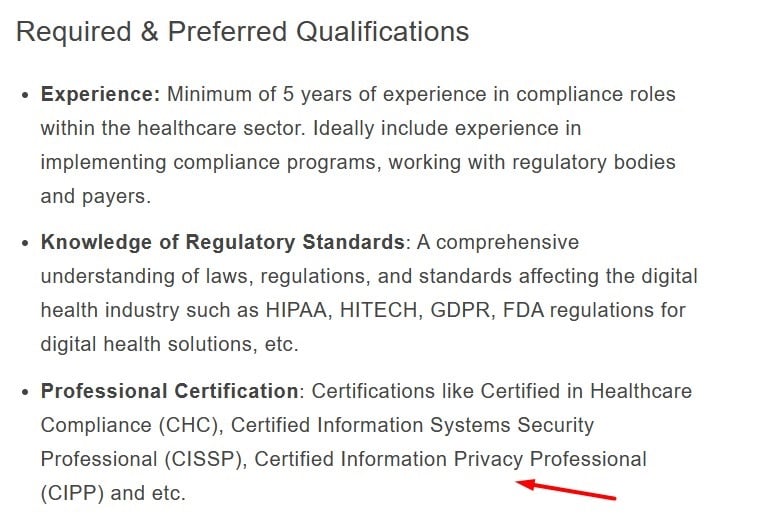
And here's another job ad that includes a CIPP (or comparable certifications) as one of its required qualifications:
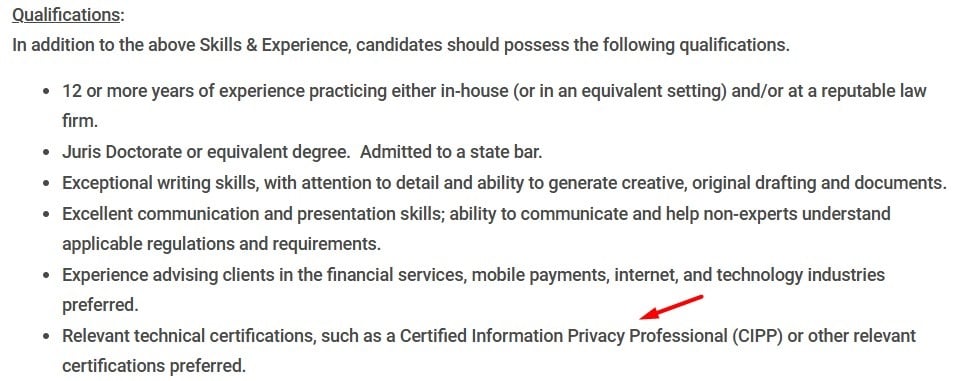
What Jobs Can You Get With a CIPP Data Privacy Certificate?
Having a CIPP Data Privacy Certificate can give you the competitive edge necessary to get hired in many fields, including the educational, financial, medical, marketing, and telecommunications industries.
Positions that a CIPP Data Privacy Certificate can help you get include:
- Data Protection Officer (DPO)
- Data Privacy Analyst
- Compliance Manager
- Privacy Director
- Cybersecurity Manager
- Chief Privacy Officer
- Data and Privacy Risk Consultant
- Information Security Officer
What is the Average Salary for CIPP Data Privacy Certificate Certified Professionals?
The pay range for CIPP-certified professionals depends on a few factors, including their role in a company, the type of organization they choose to work for, and other relevant experience.
According to Certmag's 2023 Salary Survey, the average annual salary for U.S. privacy professionals with a CIPP Data Privacy Certificate is $91,230. The average annual salary for CIPP Data Privacy Certificate holders outside of the US is $109,601.
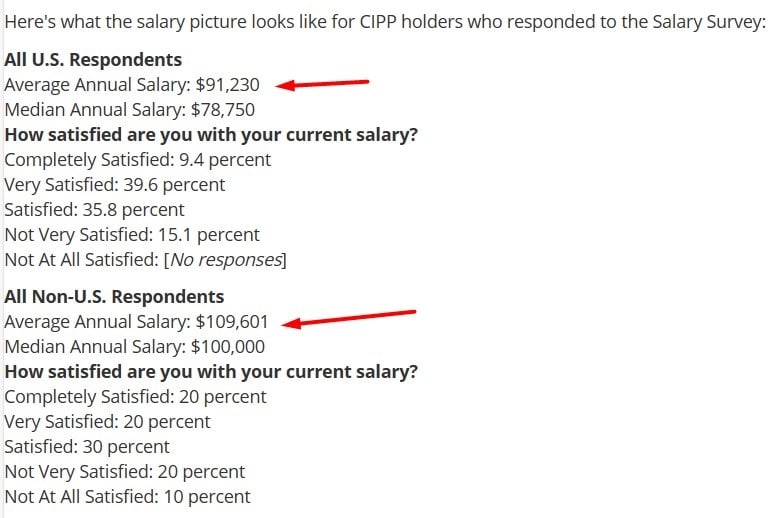
How Can You Get a CIPP Data Privacy Certificate?
Getting your CIPP Data Privacy Certificate comes down to having the time to study and the financial resources necessary to purchase course materials and a CIPP exam.
Let's take a look at the step-by-step process for getting CIPP-certified.
1. Choose Your Region
The first step in getting a CIPP Data Privacy Certificate is deciding which region you want to get certified in.
The four CIPP concentrations offered are: Asia (CIPP/A), Canada (CIPP/C), Europe (CIPP/E), and U.S. private-sector (CIPP/U.S.).
2. Create an IAPP Account
Next, you will need to create an account on the IAPP website. While account creation is free, purchasing a paid membership does provide users with discounted CIPP materials and includes Certification Maintenance Fees.
3. Purchase a CIPP Exam
Once you have created an account, you can purchase an exam. CIPP exams cost $550 per region.
Depending on the region, when you go to purchase the exam you may have the option to buy related products, including:
- Digital textbook for the program: $75
- Print textbook for the program: $95
- 90-question practice exam: $55
- Online training: $1,195
IAPP members get a discount for all products other than the exam.
You will also need to choose your language and indicate whether you have attempted the exam before or if you hold any other IAPP certificates before adding the course to your cart.
4. Prepare to Take the Exam
Before taking the exam you can take the online training, review the textbook, and take the digital practice exam (if available for your region). IAPP also offers several free resources that compliment each concentration.
For instance, individuals interested in the CIPP/U.S. program can access a glossary of privacy terms, an outline of the CIPP/U.S. Body of Knowledge, and a CIPP/U.S. exam blueprint online for free.
5. Take the Exam
When you are ready to take the exam, you can take it virtually or in-person at a testing center. The exam has 90 multiple-choice questions and must be completed within 2.5 hours. You must take the exam within one year of purchasing the CIPP program.
The CIPP/U.S. exam description explains how the exam can be administered and how certification maintenance works:
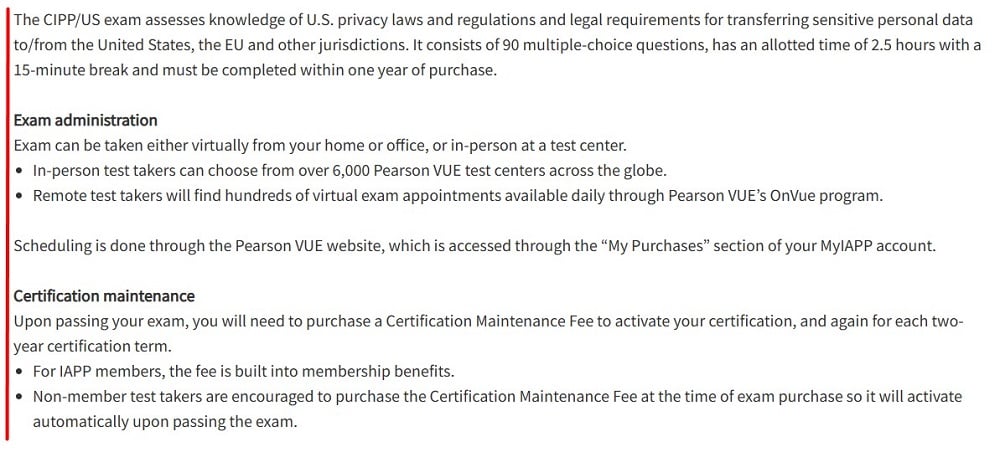
6. Maintain Certification
After passing the exam, you must purchase a Certification Maintenance Fee to activate your certification. The Certification Maintenance Fee is $250 for non-members, and can be purchased along with the exam. This fee is due every two years.
If you are an IAPP member, the Certification Maintenance Fee is included in your membership. IAPP membership for individuals renews annually, and ranges from $50-$295, depending on your demographic.
Summary
A CIPP Data Privacy Certificate is a certification you receive after passing a CIPP exam. It shows that you have a comprehensive understanding of data protection and privacy laws and what they require.
The benefits of having a CIPP Data Privacy Certificate include:
- Demonstrates your understanding of privacy and data protection regulations
- You can help organizations comply with region-specific privacy laws
- You will know how to implement best practices for protecting, handling, and transferring data
- You will have a strategic advantage over non-certified job candidates
- You will be trained to fulfill the duties of many positions, including those of a Data Protection Officer
Many organizations are now requiring a CIPP Data Privacy Certificate or similar certifications for certain positions, including:
- Data Protection Officers
- Data Privacy Analysts
- Compliance Managers
- Privacy Directors
- Cybersecurity Managers
- Chief Privacy Officers
- Data and Privacy Risk Consultants
- Information Security Officers
According to Certmag, the average annual salary for a privacy professional in the US with a CIPP Data Privacy Certificate is $91,230. The average annual salary for a CIPP-certified privacy professional outside of the US is $109,601.
To get your CIPP Data Privacy Certificate, you will need to:
- Select your region
- Create an IAPP account
- Purchase the CIPP exam and related materials
- Prepare to take the exam
- Purchase the Certification Maintenance Fee after passing the exam and once every two years (if not an IAPP member)

Comprehensive compliance starts with a Privacy Policy.
Comply with the law with our agreements, policies, and consent banners. Everything is included.
